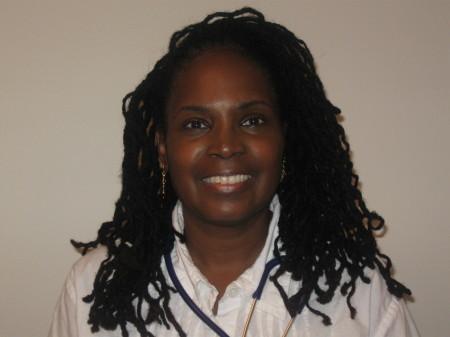Adrienne White realized that by educating and serving young girls, they can help spread the message and make a global impact.
White, a nurse practitioner of University Health Services and global health specialist, spoke about her experience mentoring young girls about sexual reproduction at an event hosted by the University of Wisconsin Campus Women’s Center Monday.
White volunteered in West Africa to teach young girls about sexual reproduction through Starfish International, an organization that provides access to education for girls in the village of Lamin, Gambia. In 2014, White designed and implemented a curriculum about sexual and reproductive health and hygiene called Girls Empowered to Promote Wellness, she said.
The girls she works with come from impoverished families where the average family size houses five to six children, White said. When most families make $500 annually, they often cannot afford to provide education for girls. Starfish will pay these school fees to ensure these girls don’t end up out of school and have access to academic support.
“I wanted to teach sexual reproductive health,” White said. “Gambia is primarily a Muslim country and sexual reproduction is not talked about. They just want this information so much because they don’t get a chance to talk about it.”
White described her encounters with adolescent girls who are sexually active in a cynical culture that wants to believe adolescents are not sexually active. Because many of these girls do not receive proper education, there is a lot of teen pregnancy. When a young girl gets pregnant in Gambia, she is shunned from society and forced to have unsafe, illegal abortions that kill many girls every year, she said.
Starfish emphasizes service by forcing girls enrolled in their program to serve their community as well. To kickstart their service, White taught the young girls how to make soap so they could teach their friends and family the importance of washing their hands with soap at a time when Ebola had just broken out in Africa.
“They educated themselves and traveled throughout the whole country,” White said. “They called it their Ebola Sensationalization Campaign. I do believe those girls majorly contributed to the fact that there was not a case of Ebola in The Gambia.”
White’s love of service and equal health care stems from her adolescence in Chicago. Born and raised in Chicago, White grew up during the civil rights movement. Her mother would open up their apartment to whole families to feed and shelter them during the tough times for people of color, White said. When she learned about Starfish, White decided she could use her love of service to help others in her global health advocacy.
In 2015, she received a faculty-staff travel award from UW’s Global Health Institute. White emphasized the importance of service in achieving this award. Service allows those interested in global health to see the broader implications of just addressing one problem in the grand scheme of global health.
“Service learning is really, really important because it … helps to broaden your perspective as well as the global health experiences,” White said. “Starfish was a life-changing event. I needed to have humility because I knew I was going to learn a lot.”














